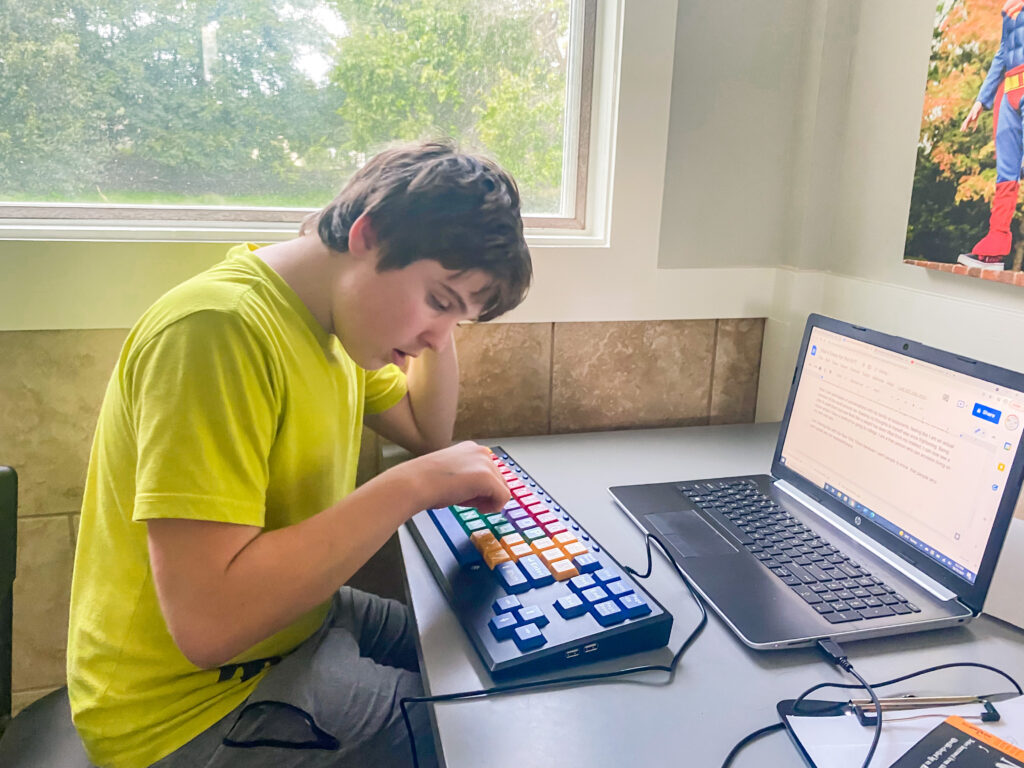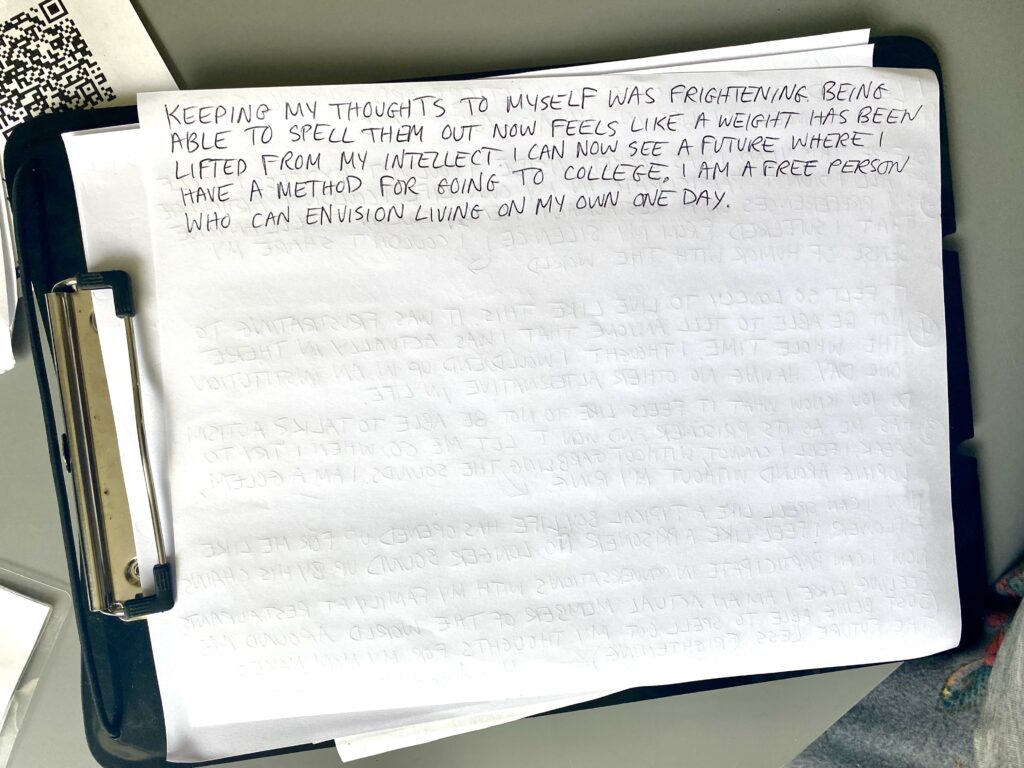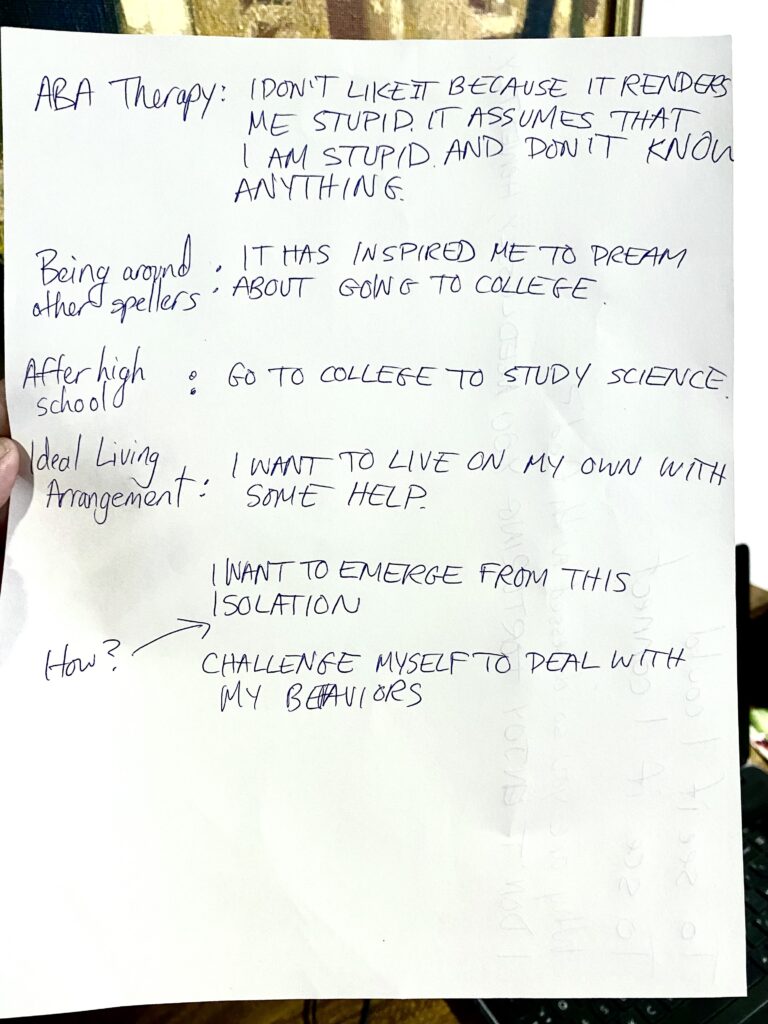I learned to communicate on a letter board this year and it has changed my life in immeasurable ways. A letter board is a plastic stencil board with the alphabet on it that I touch to spell out my thoughts.
.jpg)

Before this year, I was locked inside. I couldn’t express myself at all. I didn’t participate in my own life. I couldn’t articulate any preferences on a restaurant menu. I couldn’t share my sense of humor with the world. I couldn’t tell anyone that I suffered from my silence.
Do you know what it feels like to not be able to talk? When I try to speak, I feel I cannot, without garbling the sounds. I am a Golem, loping around without my ring. Autism has me as its prisoner and won’t let me go.
It felt so lonely to live like this. I know I am a very frustrating person to live with. It also was frustrating to not be able to tell anyone that I was actually in there the whole time. I thought I would end up in an institution one day, having no other alternative in life. People see me as a dumb boy who needs to be locked up—like Golem, retreating into his cave.
.jpg)

Very few people know what it is like to not be able to speak. No one trusts that I am there under that façade. To be seen is to be known. And I am unknown, like a boy who is invisible. I think people who are different are especially hard to place in some boxes because it is easier to forget about them than to really concentrate on figuring out what to do with them. Maybe they should try going through the extra effort of asking people like me what we need.
For non-speaking people, that means a major undertaking to teach them how to spell on a letter board, like my mom did for me this year. These months have been a lot of work, but I have enjoyed spending time with my mom, learning how to master my body to control my hands and eyes in order to spell everything I need to tell the world. Now I can spell—like a typical boy. Life has opened up for me like a flower. I feel like a prisoner no longer bound up by his chains.
Now I can participate in conversations with my family at restaurants, feeling like I am an actual member of the world around me. Keeping my thoughts to myself was once frightening. Being able to spell them out now feels like a weight has been lifted from my intellect. I can now see a future where I have a method for going to college. I am a free person who can envision living on my own one day.
I am sharing this with the New York Times because I want people to know that people who can’t speak are not necessarily intellectually disabled. We are often mislabeled and misjudged. Instead, they should truly try to give us opportunities to communicate.
I beg you to not make assumptions and judgments about people like me who cannot speak. We are in here, ready to mentor you about how to read and understand us.
.jpg)

